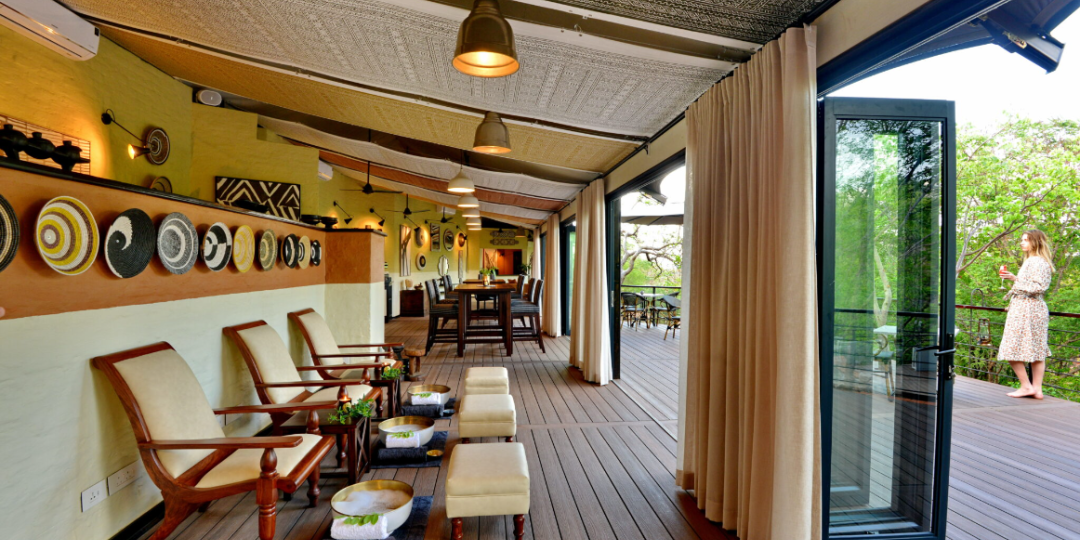Lodges at the Victoria Falls are optimistic that 2024 will herald record-breaking tourist numbers on the back of a healthy surge in occupancies during the second half of 2023.
Investment in the destination, through public- and private-sector marketing initiatives and infrastructure projects, has fuelled renewed interest from key international source markets.
“Bookings recovered extremely strongly in 2023 and we were very pleased with the second half of the year in particular, where we had three record months in terms of arrivals, occupancies and room rates,” Ross Kennedy, Director of Africa Albida Tourism, told Travel News.
“This year looks equally strong, if not stronger, and we are hoping that it will break all our best records we achieved in 2019 and 2018,” Kennedy added, pointing out that the promising numbers had strengthened the group’s resolve to reinvest in the business.
The group added the Victoria Falls Safari Spa to its portfolio in 2023, refurbished all the 72 rooms and central areas of the flagship Victoria Falls Safari Lodge, and carried out a soft refurbishment of the Victoria Falls Safari Suites.
Marketing consortiums effective
Kennedy said the public-private sector joint initiatives were proving to be an effective marketing mechanism for the region.
“The investment in the destination and destination marketing consortiums such as We Are Victoria Falls and Africa’s Eden, along with private-sector initiatives, are extremely valuable and meaningful,” said Kennedy.
“At Africa Albida we not only play our part in those initiatives, but we ourselves invest heavily in marketing the destination across the globe with representation across Africa, the United States and Canada, the United Kingdom, Germany, Australia, and other parts of the world.”
Kennedy highlighted the need for investment to be balanced with sustainable development.
“We are very conscious of the fact that the development of the destination itself needs to be managed by the authorities in terms of land use, encroachment, over-development of housing and other properties and maintaining the pristine nature of Victoria Falls as a destination and upholding it as a significant wildlife conservation asset,” he said.
Barriers to overcome
Notwithstanding the positive recovery, barriers still exist in fulfilling the potential of the destination and “capitalising on the investments that have gone into it”, according to Kennedy.
“There is a lot that can be done in terms of both properties and upgrades, and more activities to keep guests for longer and increase the length of stay. The same number of people staying longer lifts everybody’s occupancies significantly.”
Kennedy said easing Zimbabwe’s visa regime and enhancing the efficiency of entry ports were additional areas that could be focused on.
“Shortening the time from visitors disembarking aircraft to clearing the airport and getting to Victoria Falls is an area that need to be looked at. In addition, the visa regime needs to be reviewed in terms of paperwork and costs, while the e-visa service needs to be efficient and user-friendly.”
He added that, with several of Zimbabwe’s neighbours abolishing visa requirements, reducing costs or expanding their visa waiver lists, the country needed to adopt the same practices to remain competitive.
Continued public- and private-sector collaboration will also be a key driver of growth.
“We have an outstanding destination and we need to make ourselves the unequivocal gateway for the Kavango-Zambezi (KAZA) region and get the public and private sectors to work together even more.”
The KAZA Transfrontier Conservation Area spans an area of approximately 520 000 sqkm and includes 36 proclaimed protected areas across Angola, Botswana, Namibia, Zambia and Zimbabwe.
Association calls for eased regulations
Meanwhile, Emmanuel Fundira, President of the Safari Operators Association of Zimbabwe, said the current biggest challenges for the safari operator industry were over-regulation and poor access to lines of credit.
“Post-COVID, the operators are still over-burdened with legacy debts and lease payment fees that built up during the two-year period of low to zero business activity.” Fundira added that a moratorium or waiver on statutory fees and expenses should have been granted by government.
He pointed towards government’s maintaining of duty-free rebates on the importation of safari vehicles and related equipment as a positive move, but one that was mainly benefiting large and well-established businesses.
“In the absence of structured funding methods, the incentive remains the preserve of businesses with positive cash flows, at the expense of small to medium operators where growth and job creation are imperatives.”














